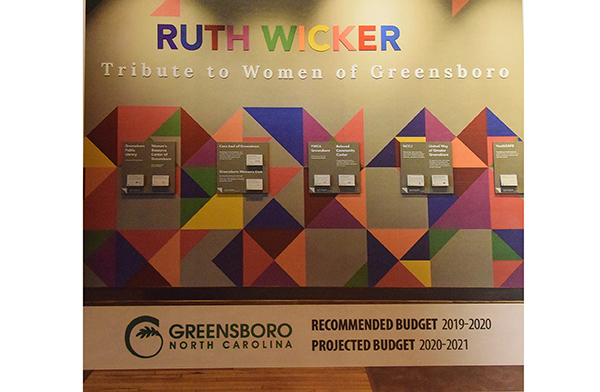Three cents may not be enough of a tax increase for this City Council.
After the Council budget work session on Wednesday, May 29 where councilmembers expressed a desire to add more spending, but little if any desire to make cuts, it appears the Council may be headed toward an even higher tax increase.
And along with the 3 cent tax increase is a brand new recycling fee of $2.50 a month per household, an increase in water rates and an increased fee for parking in city parking decks.
According to the presentation by Budget and Evaluation Director Larry Davis Greensboro has both the highest property tax rate and the highest combined city and county tax rate of any of its peer cities in the state. The proposed rate for Greensboro including the 3 cent increase is 66.25 cents. The proposed rate for Raleigh is 43.82 cents. The proposed rate for Durham is 53.34 cents and the proposed rate for Winston-Salem is 63.74 cents.
The City Council could increase spending by about $18 million without raising taxes. Each penny of property tax raises about $2.8 million for the city, so the 3 cent increase will raise about an additional $8.4 million.
Councilmember Marikay Abuzuaiter asked how much would have to be cut from the budget to not have a tax increase, but made no suggestions on where to cut $8.4 million. Abuzuaiter did say she didn’t like spending $5 million on The Tanger Center for the Performing Arts. Davis said that the projection for the first full year of operation in 2020-2021 was break even and the $5 million did not take into consideration the revenue from the first four months of operation.
City Councilmember Justin Outling asked a number of question of City Manager David Parrish about the $500,000 allocated to provide a mental health intervention service that any city employee could call, if they were dealing with someone with mental health issues.
From Outling’s repeated questions about how the system would work, what the metric of success would be and if programs in other cities were successful, it became evident that the city doesn’t have a plan, just a budget.
Outling also asked if since providing mental health care is a county service, if the county or Sandhills Center that provides mental health services for the county had been asked for help and the answer was no.
What was brought up in answers was that Charlotte had a program which is not accurate. The program in Charlotte is run by Mecklenburg County, not the city of Charlotte.
Mayor Nancy Vaughan said, “We have a budget of over half a billion dollars and we are arguing about $500,000.”
Vaughan also said that they had been working on this program for six months. Councilmember Michelle Kennedy said they had been working on it for over a year.
Outling said he didn’t know anything about any work being done on the program and this was his first opportunity to ask questions about it.
So this is yet another case where a couple of councilmembers are directing staff to do their bidding. There has been no formal vote to look into a mental health program and this was the first public discussion of how such a program might operate.
The funding of $500,000 is a dead give away that nobody has a handle how much the program would cost or how it would work.
Parrish said the staff had been working on it because there seemed to be a consensus of council to move forward with such a program and evidently Vaughan, Kennedy and others have been discussing the program in private.
Outling questioned whether the two to four employees noted in the memo sent out to City Council last week about the program would be sufficient.
Parrish said, “Two to four was a low estimate. We don’t know who would respond or how they would respond.”
It appears that $500,000 will be in the budget and the city staff will figure out how to spend the money. It’s even possible that the City Council could discuss publicly how the new program is going to operate during the year. But this City Council meets so rarely, and is so secretive about what it is doing that a public discussion can hardly be called likely.
Councilmembers Sharon Hightower and Kennedy were adamantly opposed to raising the bus fares from $1.50 to $1.75 for the fixed route bus service and from $1.50 to $2.00 for the paratransit SCAT service.
Davis explained that if the city didn’t raise fares it would have to come up with about an additional $1 million to fund the Greensboro Transit Authority (GTA). He noted that GTA in the recommended budget would receive an additional $1.7 million in funding from the city and that for the past four years the city had balanced the GTA budget by using the GTA fund balance, but that fund balance was gone so it was no longer an option.
Greensboro Department of Transportation Director Adam Fischer said that 22 percent of the cost of a bus ride is paid for with fares and for the SCAT service 5 percent of the cost is paid for with fares.
Kennedy said, “This is throwing $1 million on the backs of people who can least afford it and I am absolutely against it.”
It appears that bus fares will not be raised. Parrish and Davis said they would present a budget with options on the fare increase when the City Council holds it’s next budget work session on Tuesday, June 4. No time was given for that meeting.

